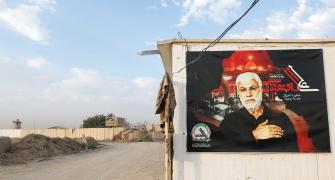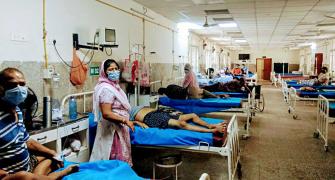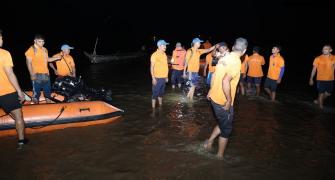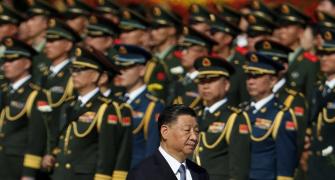What he saw mirrors a lack of concern for human life. His eyewitness account shows how unprepared people were. It also proves that natural calamities are always worsened by apathy and an unresponsive administration.
According to reports, approximately 30,000 people have died in Pakistan and Pak Administrated Kashmir. The toll is likely to climb, as rescue teams are yet to reach areas like the Northern Province. No contact has been made so far. In this first person account, Shehzad recounts a visit to the Margalla Towers, Islamabad, which collapsed like a house of cards.
It happened while I was asleep. Strong jerks. I realised, quickly, that it was an earthquake. A big one. My wife was washing clothes at the time. Sensing danger, I hurried out, asking my wife to leave the premises immediately. I was surprised to see many people out in the street already. There were some women in nightdresses, standing desperately outside my house. The sight was uncommon for the conservative place I live in -- Malpur, a town in Rawalpindi, close to Islamabad.
The first jolt continued for more than 2.5 minutes and shattered everything. My car, parked in the street outside, was bouncing! When my house stopped shaking, I stepped in. We had lost power, although electricity was restored within half an hour.
Around 9:30 am, I received a call from Abdur Rehman Makki, the Number Two man at Jamat ud Dawa (the former Lashkar-e-Tayiba), which is waging a jihad, or holy war, in Kashmir. He told me that Margalla Towers, an apartment complex in Islamabad, had collapsed. Apparently, police and the administration were not cooperating with his outfit. He was there with ambulances to try and manage relief work.
I drove to the tower soon after. The road to it was cordoned off because the police believed people were creating hurdles. I had to park and walk for 3 km. When I reached the spot, I saw that one 11-storey tower had collapsed, in big pieces. There were belongings -- clothes, mattresses, toys -- scattered everywhere. People were trapped under the debris, but the administration had no proper equipment to rescue them.
"We simply don't have the capacity to rescue these people. We don't have the sort of cranes or heavy equipment needed to lift the columns. In fact, we don't have the capacity to deal with any such disaster." The words came from Syed Mushahid Hussain, secretary general of the ruling Pakistan Muslim League, who was present on the spot.
Nilofar Bakhtiar, advisor on Women Affairs to the Prime Minister of Pakistan Shaukat Aziz Khan, had this to say: "We don't have any plan to fight with any such catastrophe. To some extent, we have the ability to fight floods, that too by sending boats."
There was an air of helplessness everywhere.
"I think the army has moved very quickly. You can see the heavy cranes it has sent us. But the problem is the pillars and columns are too heavy. These cranes cannot lift them," said Senator Tariq Azeem, minister of state for Overseas Pakistanis. "Three years ago, a three-storey building, Commercial Plaza, collapsed in Rawalpindi. Six people were killed. It took the Rawalpindi administration four days to remove the debris and rescue people. So, if you compare this incident with that one, you can safely say it will take more than a week to provide relief unless rescue work is carried out swiftly."
Malik Riaz, a real estate tycoon who developed the big Behria Town close to Islamabad, had sent heavy machinery to help with the rescue operations. But there wasn't enough space around the tower to carry out any relief work.
People were angry. They felt the administration wasn't moving efficiently.
General Musharraf reached the spot along with Prime Minister Shaukat Aziz at 3:30 pm. His arrival brought relief work to a halt. "Mr Musharraf, please leave as soon as possible. Your people are not letting us work," shouted an angry man from the crowd. Musharraf didn't waste a minute disappearing from the scene.
In the meanwhile, I spotted a friend. His uncle had jumped from the fourth floor, but didn't survive. There were more than 200 people in the tower when the earthquake occurred.
The news regarding other areas also mirrors a state of helplessness. According to the state media, more than 1,500 have been reported dead in the northern areas.
As of now, the estimated death toll across the country is more than 2,000. The tower that collapsed had 20 apartments of four bedrooms each.
Mubashir Hassan, a shopkeeper working in the vicinity, told me, "From day one, I have watched the way it was built. Construction work began 10 years ago, using substandard material. On completion, the apartments were sold at exorbitant rates. Within a year, there were cracks and seepage. Despite evident flaws, the management ignored repairs."
At the time of construction, the Capital Development Authority that manages Islamabad had a rule stating that 50% of the area had to be left without construction. When the CDA changed its rules, increasing its construction limit to 75%, the contractor, a Mr Ramzan, built the tower that had now collapsed.
The area called F-10 is surrounded by tall buildings, but Margalla Towers alone collapsed. Mubashir questions this, adding, "They were constructed properly. This tower did not have a T-structure that would survive the jolts. The contractor should be brought to book." History, however, shows that, in Pakistan, such contractors and owners are never 'brought to book'.
In the aftermath of the tragedy, residents of other towers vacated their apartments and moved to the huge Fatima Jinnah Park nearby. There are now around 500 families in the park. "We are afraid because the jolts are still being felt," said Jamal Nasir, a resident of Al Mustafa Towers. "Our tower too might collapse."
By the time I visited the place, several relief agencies like Edhi and Rescue 15 had arrived.
I saw jihadi outfits actively involved in rescue work. Jamat ud Dawa was the most active. Dawa workers didn't have good equipment, but were using a heavy hammer to rescue people from the debris.
The Number Two man Makki believed the earthquake was a punishment from Allah. "We have drifted away from the teachings of Islam and abandoned jihad. The people of Islamabad are corrupt to the bones. God has taught them a lesson."
According to eyewitnesses, when the tower collapsed, passers-by began picking up belongings instead of helping the victims.
Several people tried saving themselves by jumping from their homes. At a nearby hospital, I met a boy called Imran Ali who had jumped from his third-floor home and had broken his leg. For many, the jumps ended with death, but some escaped with injuries.
I have just returned from my second trip to the site.
With sunset, rescue work is becoming difficult. Going by the current pace, it will take months to clear the rubble. People are removing pieces of stone with their bare hands because there are no machines.
I spoke to Major Ishaq of Engineering Corps, who says that even if cranes are used, pieces of concrete may fall on those stranded beneath the columns.
Meanwhile, the Assistant Commissioner of Islamabad, Zafar Iqbal, has called, using his mobile phone, to tell me his family members are alive. Efforts to rescue them are underway. So far, five people have been rescued.
One of them called Ishaque blames the builder. "Cracks appeared in the building years ago, but the owner kept selling apartments. He should be arrested and hanged in public."
The tremors continue. I have witnessed at least four stampedes. People think another tower that has a slight tilt will fall next. With every tremor, people cry and run away. All other towers have been vacated.
For the moment, fear alone reigns supreme.
Also Read:
Complete Coverage
Courtesy: Mohammad Shehzad and Kashmir Images







